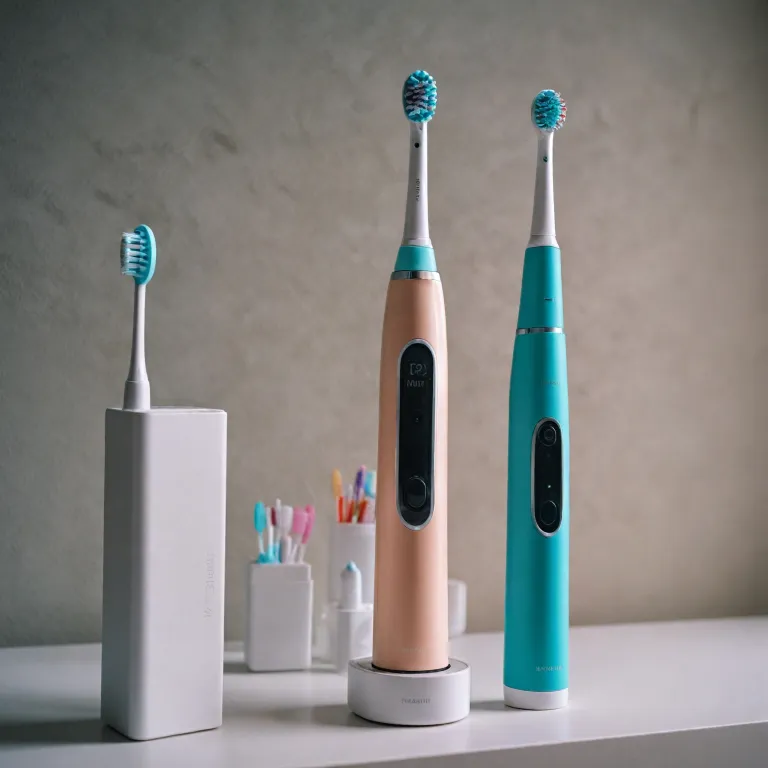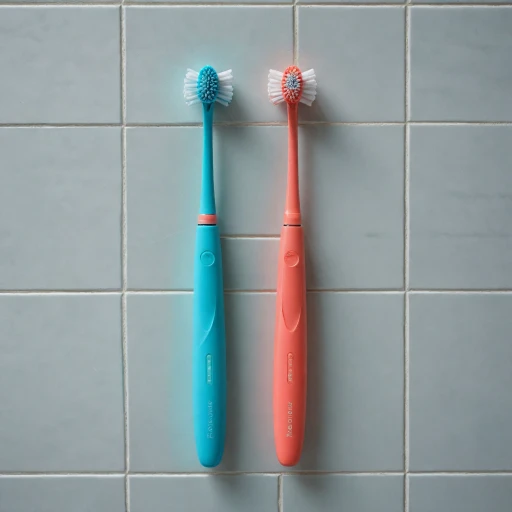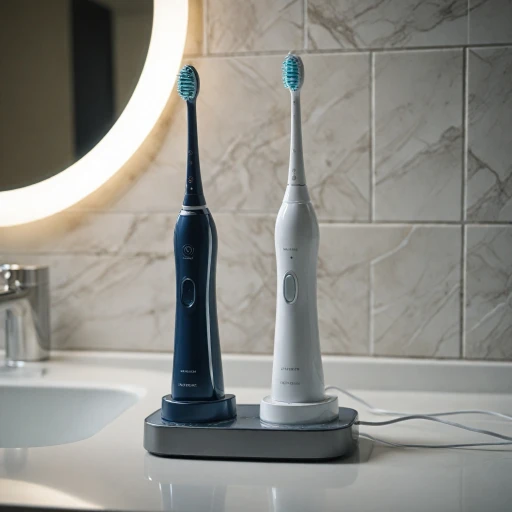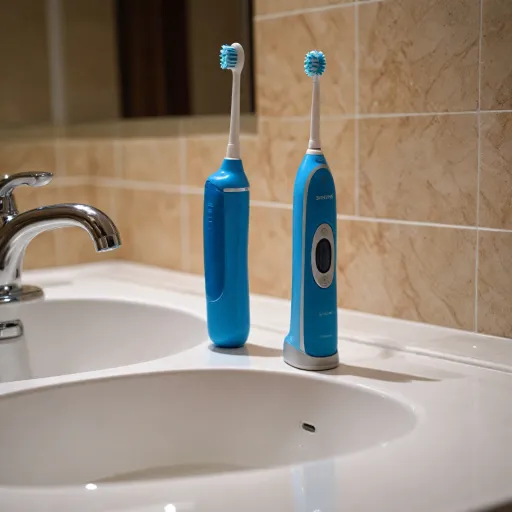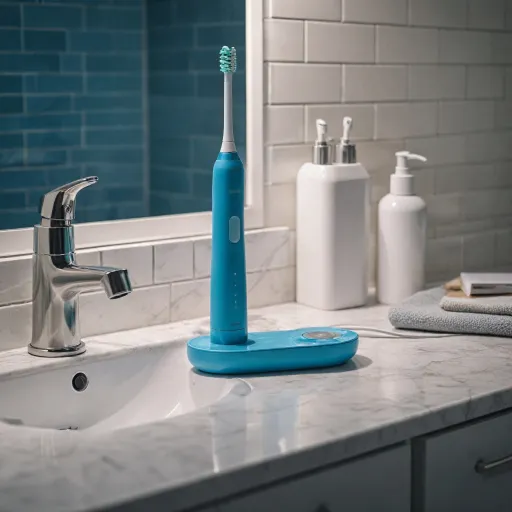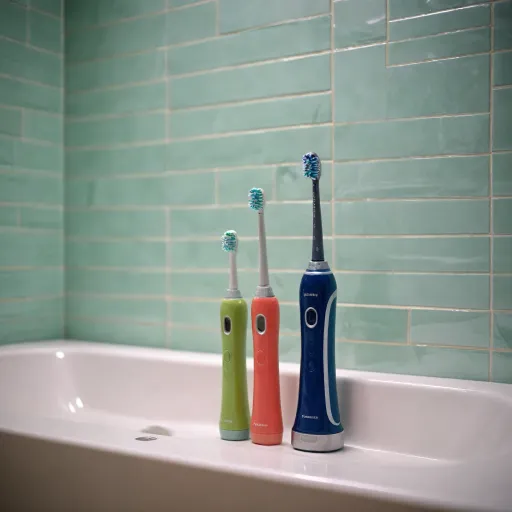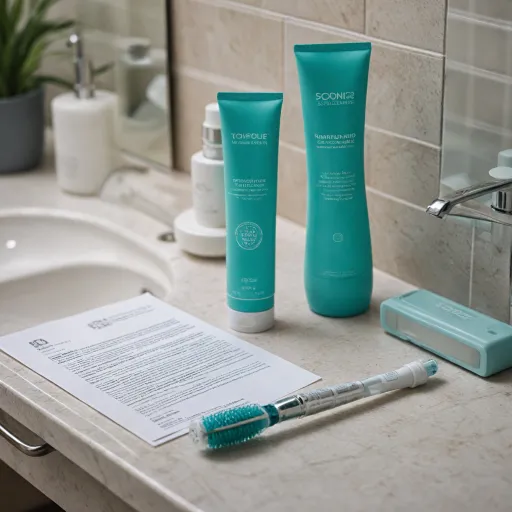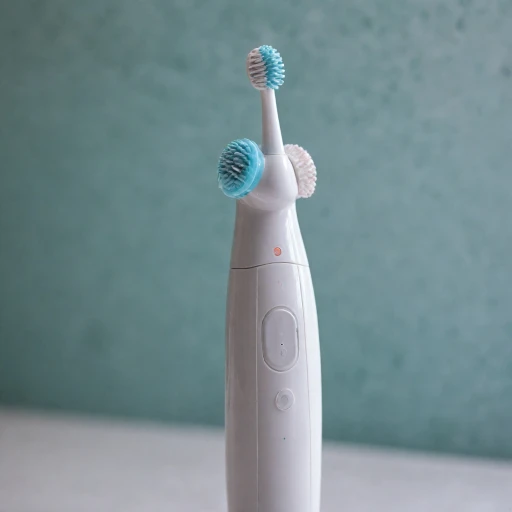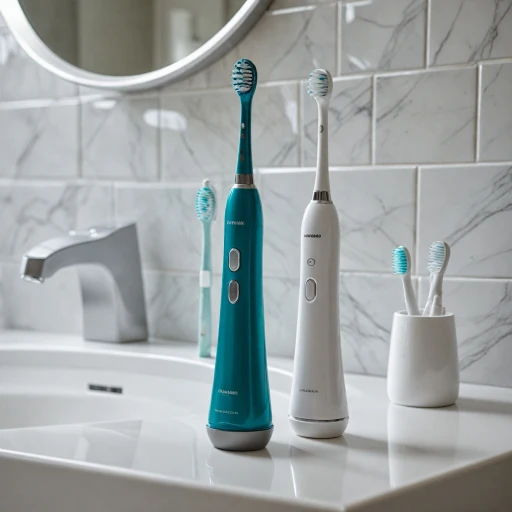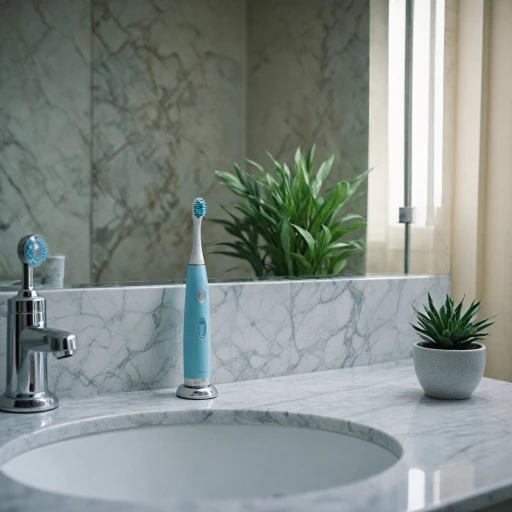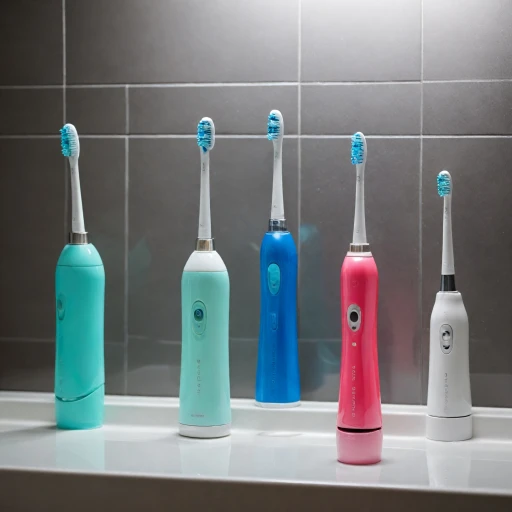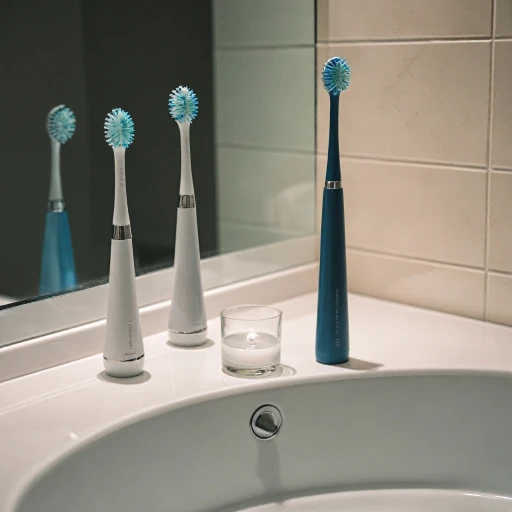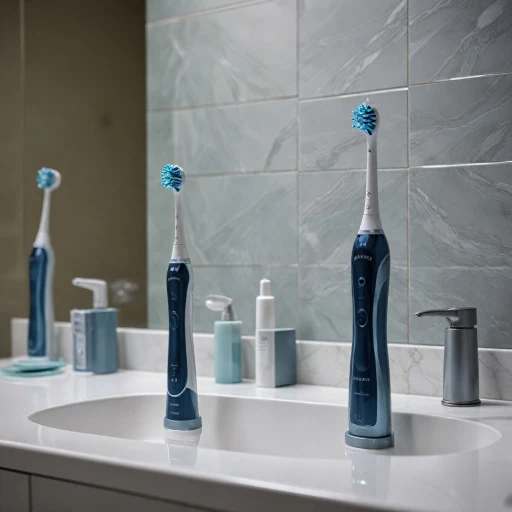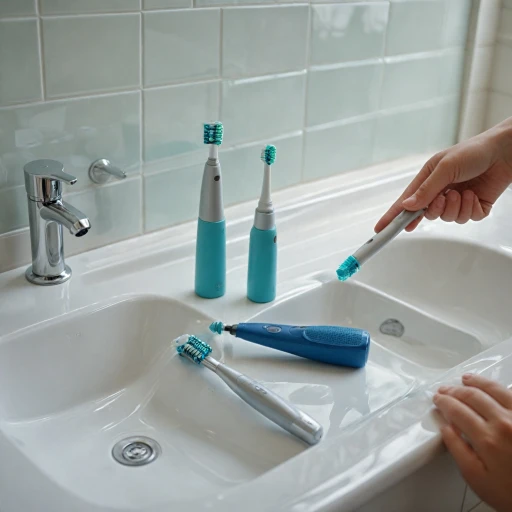
The Basics of Electric Toothbrush Batteries
An electric toothbrush can revolutionize your oral hygiene routine, but the heart of its performance lies in the battery that powers it. Understanding the essentials of electric toothbrush batteries is crucial, not just for maintaining the tool's efficiency but also for your overall dental health.
Why Batteries Matter
The battery in an electric toothbrush is fundamental to its function. Unlike manual brushes, electric toothbrushes rely on battery-powered motors for the oscillation and rotation needed for effective cleaning action. This can significantly improve teeth and gums health by removing more plaque and promoting whiter teeth.
Most electric toothbrushes come with rechargeable batteries, often lithium-ion, which are celebrated for their long battery life and efficiency in maintaining performance after multiple charging cycles. However, depending on usage, batteries can vary in lifespan, and knowing how to take care of them can extend that lifespan considerably.
Battery Types and Their Characteristics
- Rechargeable Electric: These are designed to be plugged into a power source to recharge and can last anywhere from a few days to several weeks per charge, depending on the model.
- Battery Operated: Typically found in less expensive models, these use disposable batteries like AA or AAA, requiring regular replacements.
While reviews often highlight the convenience and cost-effectiveness of rechargeable models, it's essential to ensure proper maintenance practices are followed to maximize their potential.
For those experiences issues with rechargeable batteries, understanding why your Philips Sonicare might not be charging can provide valuable insights into potential solutions.
Signs Your Electric Toothbrush Battery Needs Attention
Indications Your Electric Toothbrush Battery Needs a Check-up
Understanding when your electric toothbrush requires some attention can significantly enhance your oral care regimen. Keep an eye out for these common signs that your toothbrush battery might need some care or replacement, as this ensures effective cleaning and promotes a healthy smile.- Weak or inconsistent performance: If your electric toothbrush begins to lose power and operates inconsistently, it could indicate that the battery is nearing the end of its lifespan. An underperforming toothbrush won't provide the optimal cleaning prowess you might expect from a pro dental product.
- Frequent recharging: A rechargeable electric toothbrush that requires charging more often than usual could signal battery deterioration. Toothbrushes are designed to maintain a certain battery life, offering several days of use between charges.
- Inadequate charge holding: Sometimes, a toothbrush may fail to fully reach its charging capacity, resulting in shorter brushing periods. This is usually a sign the battery is not holding the charge as it should.
- Long charging times: If your toothbrush is taking longer to charge than typically expected, it’s a sign that the battery could be faltering. A healthy battery should charge in the standard time mentioned in the product reviews or guidelines.
Maximizing Battery Life: Best Practices
Extend the Battery Life of Your Electric Toothbrush
Maximizing the lifespan of your electric toothbrush's battery is essential for maintaining effective oral care and ensuring that you get the most from your investment in a rechargeable electric toothbrush. A well-maintained battery not only ensures optimal performance during your daily brushing routine but also can contribute to the longevity of the toothbrush itself, saving you from frequent battery replacements.
To help your electric toothbrush battery last longer, consider the following best practices:
- Regular Charging Cycles: Avoid letting your battery-powered toothbrush completely deplete its charge. Instead, charge it when it's low and make sure not to overcharge it either. This helps prevent strain on the battery, enhancing its performance and lifespan.
- Proper Cleaning and Storage: Clean your toothbrush handle and brush heads regularly, ensuring no moisture gets into the battery compartment, which can cause battery issues like corrosion or rust.
- Avoid Extreme Temperatures: Store your electric toothbrush in a cool, dry place. Excessive heat can cause the battery to degrade faster, while low temperatures can affect battery performance.
- Quality over Quantity: Each time you buy a product, familiarize yourself with electric toothbrush reviews and check their average star ratings to know more about their battery reliability and overall customer satisfaction.
Being aware of these practices not only boosts your battery life but also ensures a better and prolonged oral hygiene experience. An effective daily oral care regimen is not just about the brush itself but also how well you maintain the battery it relies on to keep that radiant smile.
Common Battery Issues and Troubleshooting
Addressing Frequent Battery Hiccups and Resolutions
When dealing with electric toothbrushes, battery issues can be a common annoyance, but fortunately, many can be resolved with some preventative measures and basic troubleshooting. Whether you own a rechargeable electric or battery-operated model, these useful guidelines can help in maintaining your device for optimal oral health. Consider the following common problems and how to tackle them:- Battery Not Holding Charge: Often, electric toothbrushes face the issue of the battery not holding its charge. This could be due to using older batteries or improper charging habits. Always ensure you're using the correct charger for your toothbrush to maintain optimal battery health. Regularly cleaning the battery contacts can also aid in improved charging efficiency.
- Batteries Draining Quickly: A well-functioning electric toothbrush should offer days of use on a single charge. If your battery drains rapidly, you may be overcharging it. For those using rechargeable electric toothbrushes, aim to unplug your toothbrush once it reaches full charge. Continuous overcharging can reduce the lifespan of your batteries.
- Device not Turning On: Sometimes, your battery-powered toothbrush doesn’t turn on. It may be as simple as needing a battery replacement, or checking for any obstructions at the contact points of the battery. This basic maintenance can be integral to ensuring your toothbrush works smoothly, giving you a radiant smile.
- Battery Connection Issues: Ensure that battery terminals are not corroded. Gently cleaning them with a cotton swap dipped in vinegar or hydrogen peroxide can improve connection and performance.
When to Replace Your Electric Toothbrush Battery
Determining the Right Time for Toothbrush Battery Replacement
Replacing the battery of your electric toothbrush can be a pivotal step in maintaining its performance and ensuring optimal oral hygiene. Here are some signs and considerations to help you determine when it's time for a battery change:- Decreased Performance: If you notice that your toothbrush doesn't clean your teeth as efficiently as it used to, it may be due to a weakening battery. Poor performance in removing dental plaque or achieving that fresh, clean feel could indicate that the battery's life is nearing its end.
- Shortened Battery Life: As mentioned earlier, if the once powerful charge of your toothbrush now barely lasts a couple of days, this is a clear sign that your batteries need replacing. A healthy, rechargeable electric toothbrush should ideally sustain several days of brushing on a single charge.
- Charger Issues: Faulty charging can sometimes replicate the symptoms of a dying battery. Ensure that the charger and its connections are fully functional before deciding on a replacement.
Eco-Friendly Disposal of Electric Toothbrush Batteries
Environmentally Responsible Disposal Choices
As you've enjoyed your electric toothbrush's superior cleaning capabilities and optimized oral health, eventually, the time will come when its battery reaches the end of its life. Proper disposal is crucial not only for your safety but also for environmental sustainability. Here’s how you can dispose of your battery in an eco-friendly way.
First, understand your local regulations regarding the disposal of batteries. Many communities have designated drop-off sites or waste collection events for hazardous materials, including battery operated devices like electric toothbrushes. This helps prevent harmful substances from entering landfills, reducing potential damage to the environment.
Retail stores that sell electronic products, such as battery-powered toothbrushes, often provide recycling programs. These initiatives allow customers to return used products, ensuring responsible disposal and recycling of batteries and other components. Exploring these options can help ensure that your used toothbrush battery is managed in an environmentally friendly manner.
Additionally, consider investing in rechargeable electric toothbrushes in the future. These models usually have a longer lifespan compared to disposable counterparts, which results in less frequent waste generation. Not only do they enhance your oral hygiene routine with features that support whiter teeth and a healthier smile, but they also help reduce your environmental impact.
Remember, sustainable disposal of your electric toothbrush battery reflects a commitment to both personal oral care and planetary health.

